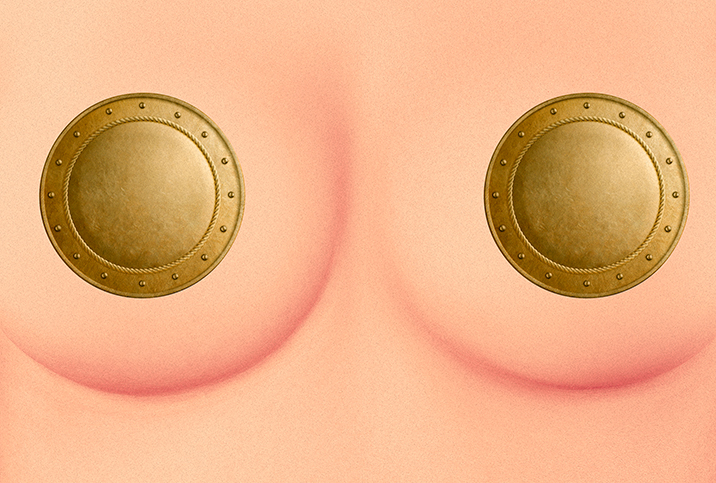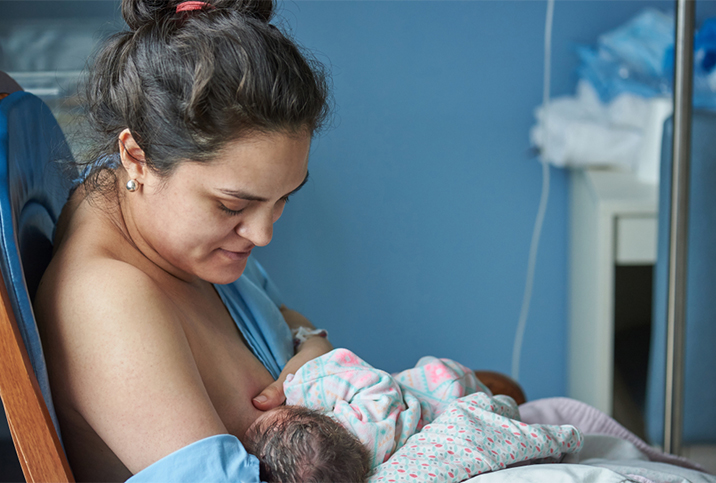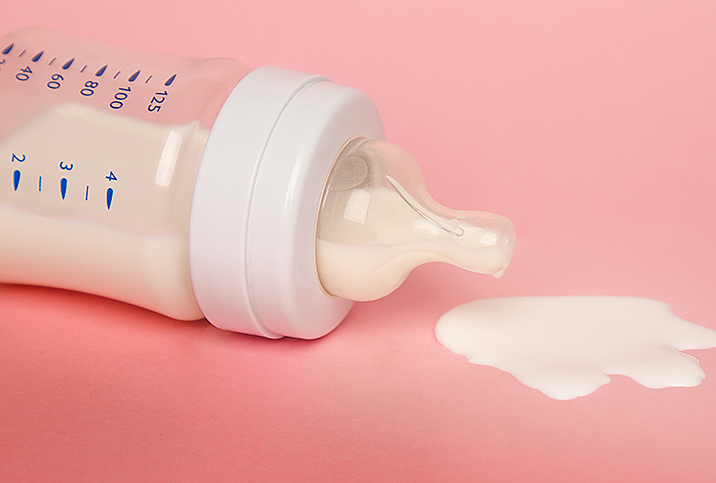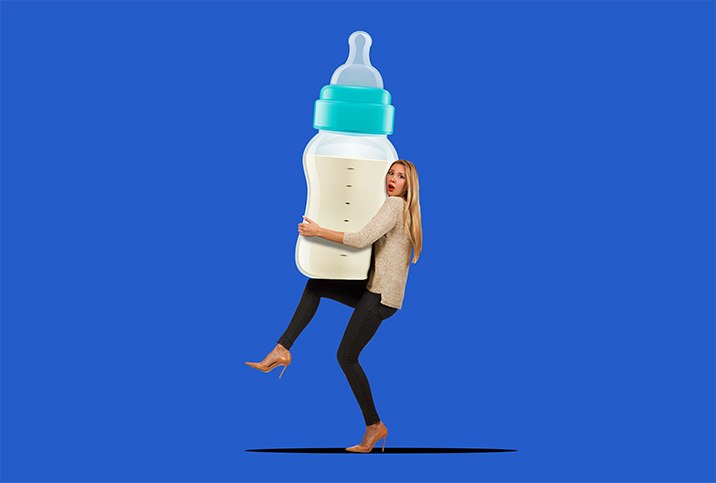How to Cope With Infant Breast Refusal

Many infants may refuse to feed at some point, but it can be a source of worry for parents, especially if their babies are younger than 6 months old and exclusively breastfed. The good news is there are many tips and tricks that can help mitigate breast refusal, put parents' minds at ease and get babies feeding again.
Why does breast refusal happen?
Breast refusal is sometimes referred to as a "nursing strike" and can last anywhere from one feeding to a few days in some circumstances. It can happen while a baby is still learning to breastfeed and may be caused by them struggling to latch effectively. Premature babies can sometimes take longer to get the hang of breastfeeding effectively. In these cases, working with a midwife or lactation consultant may help.
"Difficulties with the latch are extremely common," said Rebekah Diamond, M.D., assistant professor of pediatrics at Columbia University in New York City and author of "Parent Like a Pediatrician."
If you feel discomfort or pain while breastfeeding, Diamond said it's best to consult a specialist.
"There are strategies to help with this, and an expert IBCLC will work with you to find a way to maximize breastfeeding and minimize pain," Diamond explained, referring to an International Board Certified Lactation Consultant, the highest qualification available for breastfeeding experts who can help with all kinds of feeding issues.
Breast refusal can happen at any time, said Caitlyn Parker, a Florida-based IBCLC and consultant relations manager at the Lactation Network. The reasons include:
- Teething
- Illness, such as a stuffy nose
- Nipple preference or confusion, including when a baby becomes used to a bottle or nipple shields
- Flow preference; the bottle teat may be too fast or slow
- Breastfeeding parent has an overactive letdown, or oversupply
- Tongue-tie
- Reflux
- The baby may need bodywork, such as chiropractic care
"[A] study showed that breast refusal occurs in 24 percent of infants at 6 months," said Caitlin Goodwin, M.S.N., R.N., a board-certified nurse midwife in West Palm Beach, Florida, and a medical consultant at Mom Loves Best, a pregnancy and motherhood resource site.
Goodwin said in her experience, many nursing strikes pass after two to four days and may be caused by an unrelated external factor.
Techniques that can help
Sometimes, just being prepared is key and knowing some simple techniques or advice can reduce anxiety if breast refusal does happen.
"Just latching a baby on and then walking around as you breastfeed is sometimes all that you need to do to keep a baby engaged and feeding at the breast," advised Jessica Madden, M.D., a Cleveland-based certified lactation consultant, board-certified pediatrician, neonatologist and medical director at Aeroflow Breastpumps.
She added that slightly older babies are so efficient at feeding that they get what they need in a few minutes before they get distracted or want to return to playing.
"This is developmentally appropriate and totally OK," Madden said.
Goodwin recommended taking a "breastfeeding holiday," where you spend 24 to 48 hours offering the breast, perhaps on a weekend or day off work. If using formula, she suggested trying paced feeding, cup feeding, or a tube alongside the nipple to make the baby more likely to continue to accept the breast.
She said refusal is more likely with combination feeding, as the baby may prefer the bottle, and sometimes strikes can occur as the baby attempts to wean. However, weaning should be a gradual process, so consult a medical professional if you have any concerns.
'It is essential to make sure that a baby gets alternate nutrition via a bottle, syringe or another feeding device to prevent dehydration, low blood sugar and weight loss.'
Throughout the breastfeeding process, it's essential to check that the baby is producing plenty of wet and dirty diapers and to look out for signs of dehydration. These can include a sunken fontanelle (soft spot), drowsiness and crying with few or no tears. Regular weigh-ins can also confirm that the baby is feeding appropriately and gaining enough weight.
The biggest issue is if a baby ages 0 to 3 months refuses to breastfeed, Madden said. She advised getting a medical assessment to look for an organic cause of breast refusal, such as thrush, reflux, an ear infection or first teeth coming in early. This examination can also look for issues with the breastfeeding parent, including a nipple infection, such as thrush or mastitis, or a physiological issue, such as inverted nipples.
Madden recommended taking action if breast refusal lasts longer than six to eight hours.
"It is essential to make sure that a baby gets alternate nutrition via a bottle, syringe or another feeding device to prevent dehydration, low blood sugar and weight loss," she said.
This necessity is especially the case for newborn or preterm babies, because they do not have the fat stores to tolerate not eating for a significant amount of time.
Parker advised reaching out to an IBCLC as soon as possible so they can help you identify the cause of breast refusal. In order to take the pressure off both you and your baby, she suggested offering the breast after a feeding to give the baby an opportunity to nurse for comfort as well as feel skin-to-skin contact to build trust at the breast.
"Keep trying, as consistency is key," Parker concluded.
Remember, this is a common issue, so don't be afraid to ask for help.


















